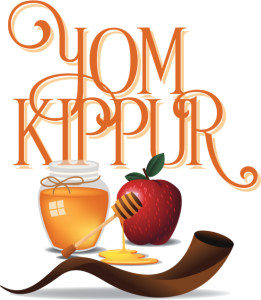
Yom Kippur is one of the most important holidays for Jews. It is also called the “Day of Atonement,” and is the time to repent for all of one’s sins from the previous year and seek forgiveness. The date is different each year, but it always occurs in September or October. The holiday is observed over two days and begins on sunset of the first day. In 2015, it falls on September 22–23.
Traditional Observances
Yom Kippur is like the Jewish Sabbath in that work is forbidden. It is also traditional to fast from sundown on the first day to nightfall on the second day. Young children, pregnant women, new mothers and people who are sick are not expected to participate in the fasting.
Some other customs include not bathing and foregoing perfumes, lotions and leather shoes. The ban on leather originated from an unwillingness to wear the skin of a slain animal while also appealing to God for forgiveness for one’s sins. Canvas shoes are a popular alternative to leather ones during the holiday. Sexual relations are also forbidden on Yom Kippur.
Many people spend the majority of the second day in prayer at their temples. Even Jews who are not particularly religious will attend synagogue at this sacred time of year.
The afternoon before Yom Kippur begins with a pre-fast meal called seudah ha-mafaseket; the literal translation is “meal of separation.” Some of the foods typically eaten are kreplach (stuffed dumplings), challah bread, fish, chicken and rice. If possible, the meal is made without salt because it can cause dehydration, and not drinking water is also part of fasting on Yom Kippur.
Baseball and Yom Kippur
Yom Kippur typically occurs at the end of the baseball season and may coincide with playoff games — or even the World Series. Jews are not supposed to work on the holiday. Several Jewish baseball players have made headlines over the years for refusing to play.
- Hank Greenberg
Hank Greenberg played for the Detroit Tigers in the 1930s and 1940s. He was known for hitting home runs; two of his nicknames were the “Hebrew Hammer” and “Hammering Hank.” Greenberg played first base for the Tigers, and was inducted into the Baseball Hall of Fame in 1956. In the fall of 1934, the Tigers were in a season-end battle for the American League pennant. One of the playoff games fell on Yom Kippur, but Greenberg opted to attend temple services instead. He received a standing ovation when he arrived at the synagogue.
- Sandy Koufax
Dodgers pitcher Sandy Koufax was the youngest player ever inducted into the Baseball Hall of Fame. His career peaked in the early-to-mid 1960s. In 1965, Koufax refused to pitch in Game 1 of the World Series because it was on Yom Kippur. The decision caused quite a stir. The Dodgers lost the game 8-2 to the Minnesota Twins. Koufax pitched three other games in the series, which the Dodgers ultimately won. He was named World Series MVP and also won the Cy Young award that year, which is pitching’s highest honor.
- Shawn Green
Shawn Green is considered by many to be the best Jewish baseball player since Sandy Koufax. He is the holder of numerous MLB (Major League Baseball) home run records; he once hit four home runs in one game in 2002. In 2001, when he was playing for the Dodgers, he made the decision to sit out an important game at the end of the season because it fell on Yom Kippur. Green cited Sandy Koufax as an inspiration for his actions.
Yom Kippur is a sacred time of year for Jews—it provides an opportunity to atone for one’s sins and start anew. If you are a professional baseball player or fan, hopefully the holiday doesn’t conflict with an important game.

